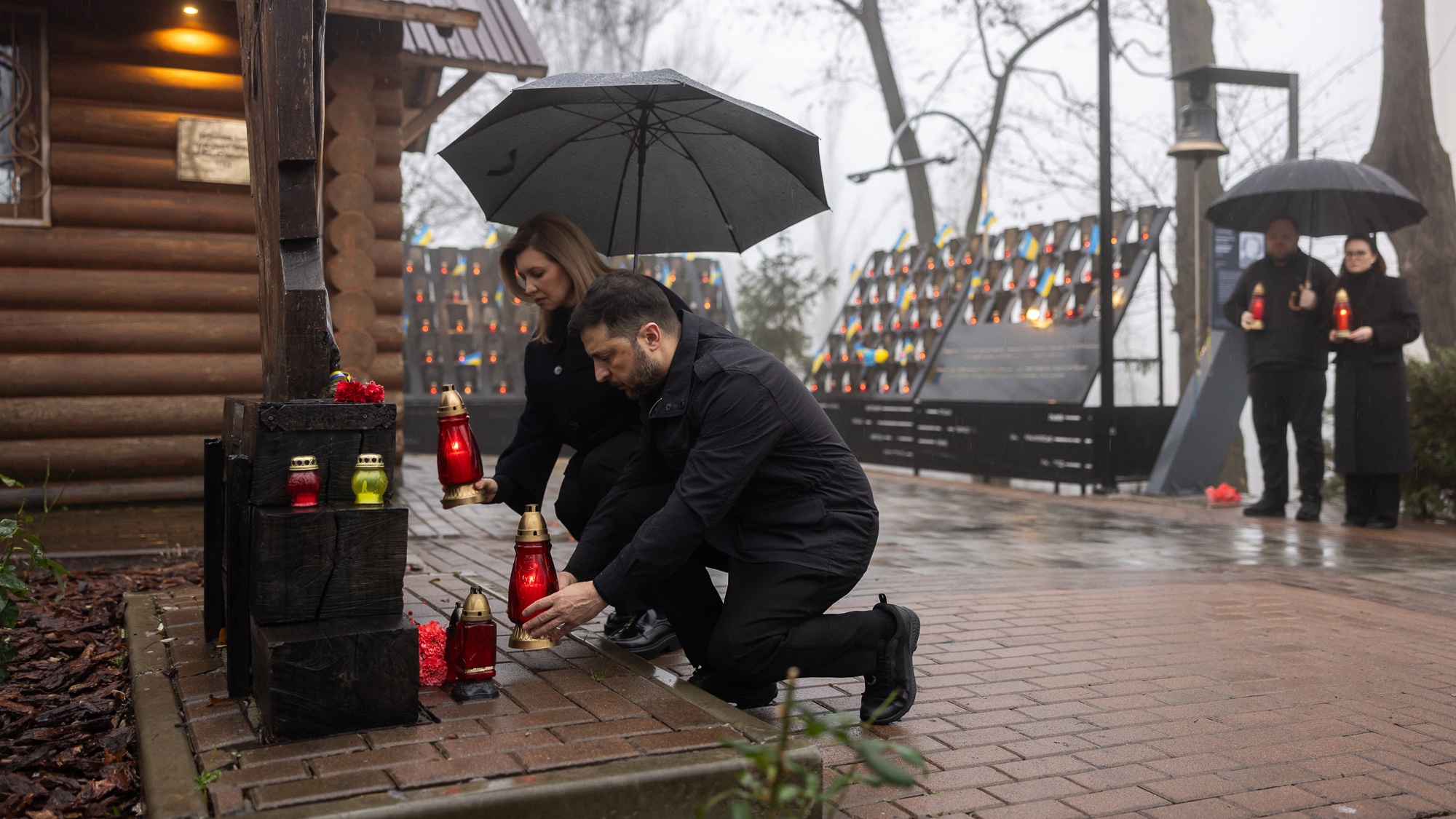Zelenskyy Under Pressure as Trump’s 28-Point Peace Proposal Pushes Ukraine Toward Concessions
Ukrainian President Volodymyr Zelenskyy has confirmed that his government is actively reviewing a US-drafted plan to end the nearly four-year war with Russia, as Kyiv grapples with renewed battlefield assaults and growing diplomatic pressure from Washington.
 |
| Image Source: Zelenskyy |
The plan, widely attributed to US President Donald Trump, outlines 28 points that include conditions Ukraine is expected to accept in exchange for peace, among them territorial concessions, limits on its military, and permanent exclusion from NATO.
Reports suggest the proposal would allow Russia to retain control of Crimea, Donetsk, and Luhansk, and to maintain influence over parts of Zaporizhia and Kherson by freezing battle lines. In return, the West would lift sanctions on Russia and welcome it back into the G8.
The plan also proposes banning Ukraine from ever joining NATO, capping its armed forces at 600,000 troops, and imposing a mutual non-aggression pact between Russia, Ukraine, and Europe.
One of the most contentious clauses promises full amnesty to all parties involved in the conflict, an unprecedented move that could effectively shield Russian officials, including President Vladimir Putin, from prosecution for alleged war crimes.
The American side presented points of a plan to end the war—their vision. I outlined our key principles. We agreed that our teams will work on the points to ensure it’s all genuine.
— Volodymyr Zelenskyy / Володимир Зеленський (@ZelenskyyUa) November 20, 2025
We're geared up for clear and honest work—Ukraine, the U.S., our European and global partners. pic.twitter.com/DscaCBg4vW
While the US has not formally released the plan, Ukrainian and European officials have acknowledged receiving the proposal through unofficial channels. According to Reuters, the US has tied future intelligence sharing and weapons support to Ukraine’s willingness to sign a framework agreement by next week.
Complete text: Trump’s 28-point peace plan for Ukraine. pic.twitter.com/MFC5ikgHqo
— Richard (@ricwe123) November 21, 2025
The unprecedented pressure campaign has sparked concern in European capitals, which were reportedly not consulted in the drafting process. German Chancellor Friedrich Merz, French President Emmanuel Macron, and UK Prime Minister Keir Starmer expressed support for ending the war but reiterated their backing for a “just and lasting peace,” stressing that Ukraine’s sovereignty and territorial integrity must not be compromised.
Zelenskyy’s public response has been cautiously diplomatic. In an address after meeting with US military officials in Kyiv, he reiterated Ukraine’s core demand for a “dignified peace” that would prevent future invasions and safeguard the country’s independence.
While acknowledging that discussions were underway, Zelenskyy emphasized that any peace agreement must reflect the values and aspirations of the Ukrainian people.
On the battlefield, the pressure is intensifying. Russian forces have continued to make gains in eastern and southern Ukraine. A deadly missile strike on the city of Ternopil killed at least 31 people and injured nearly 100 more, including 18 children.
In the east, Ukrainian troops are reportedly surrounded near the River Oskil in Kharkiv, and heavy fighting continues around the contested cities of Pokrovsk and Myrnohrad. Russia has also advanced in the Zaporizhia region, where five more civilians were killed in an airstrike on Thursday.
Kremlin spokesman Dmitry Peskov said these territorial advances should encourage Kyiv to accept the peace terms now, warning that “the space for freedom of decision-making is shrinking” for Ukraine.
Today, during a meeting with the U.S. Secretary of the Army, Daniel Driscoll, we discussed options for achieving real peace, the sequencing of our work and formats for dialogue, as well as new impulses for diplomacy. Our teams – of Ukraine and the United States – will work on the… pic.twitter.com/kWXnFh4YNz
— Volodymyr Zelenskyy / Володимир Зеленський (@ZelenskyyUa) November 20, 2025
Critics of the Trump proposal argue that the plan risks legitimizing aggression and undermining international law.
The inclusion of a clause granting full amnesty for wartime actions has drawn particular scrutiny, given the International Criminal Court’s warrant for Putin’s arrest over the abduction of Ukrainian children.
Analysts say the plan appears to assume global acceptance of sweeping geopolitical compromises, including the restoration of economic ties with Russia, the use of frozen Russian assets for joint US-Russia investment projects, and a provision that would give the US half of the profits from Ukraine’s reconstruction.
All night long, our rescuers worked in Ternopil, and search-and-rescue operations are still ongoing. 22 people are still missing – the effort to find them continues. More than 230 first responders from nine regions of Ukraine have been deployed. In some areas, work can only be… pic.twitter.com/3wrrdwIiNd
— Volodymyr Zelenskyy / Володимир Зеленський (@ZelenskyyUa) November 20, 2025
European officials have so far withheld official comment on the plan but are expected to address the matter during the G20 summit in Johannesburg.
European Commission President Ursula von der Leyen and European Council President Antonio Costa have indicated that the proposal will be discussed on the summit’s sidelines.
The Trump plan has gained political backing from some of his allies, including Hungarian Prime Minister Viktor Orban, who called it a “bold step toward peace.”
However, experts warn that the practicalities of the deal remain unclear and that the document’s vague language leaves room for serious contention.
